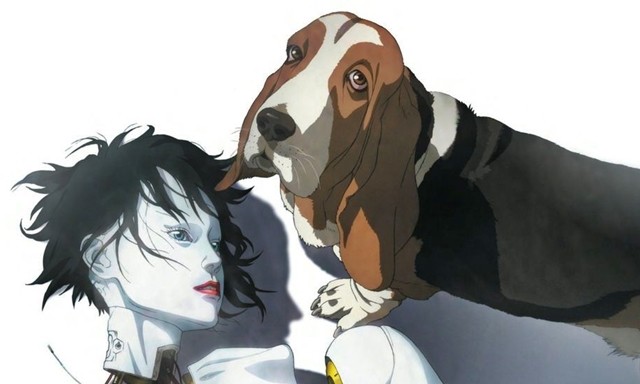
By Jae-Ha Kim
Chicago Sun-Times
September 17, 2004
![]()
“If our gods and our hopes are nothing but scientific phenomena, then it must be said that our love is scientific as well.”
With that quote from Auguste Villiers de L’Isle-Adam’s novel L’Eve Future, so begins the beautifully animated but excessively philosophical “Ghost in the Shell 2: Innocence.” The sequel to 1995’s “Ghost in the Shell” — which was one of the most successful anime films of all time — “Innocence” is ambitious and gorgeous to look at, but is so lacking in humanity that at times it is almost painful to watch.
Perhaps that’s the point of the film — that with no humanity, life cannot be fulfilling or worth living.
Or perhaps this sequel simply is a good-looking but pointless follow-up to a much better original in the same way that the sequels to the “Matrix” did little to flesh out the promise of the original picture.
Mercenary-like cyborg detective Batou has been ordered to figure out why a slew of rogue gynoids — female androids whose sole purpose is to sexually gratify their masters — have gone on a killing spree. Are we to believe these androids have feelings? And if they do, and they can understand the consequences of their actions, what — if anything — differentiates them from human criminals? And does it even matter?
Those were some of the questions running through my mind as I watched the story slowly unfold. That Batou — who has a human soul — walked and talked like the robot he is didn’t bother me, especially as my eyes were feasting on fantastic cyberpunk world created by writer/director Mamoru Oshii. Lush, harsh and vivid, the striking graphics are so eye-catching you sometimes forget to keep up with the subtitles at the bottom of the screen.
Set in 2032, this is a time where there is little difference between man and machine. The bodies may be artificial but there are traces of humanity in their “brains.” When a little girl being used as a prototype for an android is found, she shouts out that she doesn’t want to be made into a doll. As one of the characters points out, “If the dolls could speak, no doubt they’d scream, ‘I don’t want to become human.'”
The problem with this movie is it tries to be too many things at once — an action flick, a psychological thriller, a philosophical introspection of life — and it leaves us slightly satisfied but ultimately feeling as if we’ve been cheated.
“Birds never peck at green persimmons. They will wait until the fruit is ripe,” Batou tells his new partner.
Does Batou’s former partner the Major actually exist in any form outside of his imagination? If, in fact she does, is her soul enough to define her humanity? Do birds actually peck at green persimmons? We don’t really know, do we?





